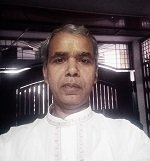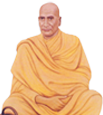In the year 2000 Faculty of Engineering & Technology was established with an aim of imparting technical education in the spiritual surroundings of the Gurukula System. Keeping in mind the importance of technocrats with strong moral character, superior knowledge, and devotion to the nation. FET was established with a motto of Building Technocrats with ethics. FET is known in India and abroad for students with virtuous moral character and Technical abilities. Currently, it is providing education in B. Tech. in Computer Science & Engineering, Electronics & Communication Engineering, Electrical Engineering, and Mechanical Engineering. FET is one of the richest faculty of Gurukula Kangri (Deemed to be University), with a huge number of books in the library, well-equipped electronics electrical and mechanical laboratories, latest software, and computers in computer labs. Football field, Tennis court, Volleyball court, Basketball arena, and open gym for the students with athletic interests.
Vision of F.E.T.
To provide affordable & quality education to engineering aspirants and nurture them to be highly skilled & innovative technocrats with ethics and nation building spirit.
Mission of F.E.T.
M1: (ETHICS & VALUES)
To educate and nurture engineering aspirants with values, updated engineering curriculum & latest technology to make them globally trusted and accepted.
M2: (RESEARCH)
Provide conducive environment for teaching, learning & research that can lead to patents, publications and make country proud.
M3: (AFFORDABILITY)
Provide cost effective education so that every section of society can be benefitted.
M4: (SKILLED)
Design industry oriented curriculum that can make engineering graduates ready to work for Indian Industries as well as MNCs.
Gurukula Kangri (Deemed to be University), gives a real feel of Gurukula which is known for its philosophy of Vedic management, Innovative academic resources, green & calm environment with a blend of Vedic Cultur e as imagined by Swami Shradhanand Ji, the great Vedic philosopher and founder of this prestigious University. Here in the Faculty of Engineering and Technology (FET), we nurture the overall personality of the future intelligentsia and make them good human beings. I am glad to offer various courses in Engineering and Technology to different sections of society with a mission to make this world a more peaceful and meaningful place to live.
e as imagined by Swami Shradhanand Ji, the great Vedic philosopher and founder of this prestigious University. Here in the Faculty of Engineering and Technology (FET), we nurture the overall personality of the future intelligentsia and make them good human beings. I am glad to offer various courses in Engineering and Technology to different sections of society with a mission to make this world a more peaceful and meaningful place to live.
Over the last couple of years, FET has differentiated itself as a leading Engineering Campus through continuous improvement in its Engineering teaching pedagogies and sincere efforts to groom students. The role of a good educational institution is to bring out the latent abilities of students so as to ensure their overall development. FET has always believed in the concept that any work or play without learning makes a dull personality, so it lays emphasis on learning propelled teaching instead of traditional teaching pedagogies. Believing that the young minds of today will become the policymakers of tomorrow, FET tries to provide its young intellectuals, the opportunities to explore new and latest engineering tools and techniques, technologies to hone their skills. Today, in this intellectual, technical, and competitive era, it is essential to be intuitive, creative, and communicative to survive. FET provides a platform to the young minds by conducting and participating in technical competitions, hackathons, conferences, symposiums, quizzes, and many other outreach programs regularly too so that they can pioneer out of box thinking and tackle future challenges intelligently and calmly. Teachers of FET believe that life has a purpose of social service that can be fulfilled by contributing to this world, through our deeds of work and knowledge sharing.
Our B.Tech. programs in Computer Science & Engineering, Electronics & Communication Engineering, Electrical Engineering, and Mechanical Engineering produce the intellectuals who during their professional career always leave the footprints in the faculty as our alumni, which makes us an intrinsically interfaced industry-academic body. Wherever they go, whatever they achieve, one thing remains unchanged and that is the relationship with FET faculties and students that gives FET the linkages with the industry for better placement record every year.
Prof. Vipul Sharma
Dean, F.E.T.
- Department of Computer Science & Engineering
- Department of Electronics and Communication Engineering
- Department of Electrical Engineering
- Department of Mechanical Engineering
- Department of Applied Sciences
Faculty Library
Faculty houses a good Library of its own which has approx. 31,000 books having more than 3600 titles. Books in the library are not only prescribed books but approach other areas also so that students get a wider spectrum of world around. Faculty Library also has a separate reading room, besides this faculty library is a proud member of DELNET which is a network of libraries of AICTE approved institutions. The circulation system of the library is fully computerized and the total volume of circulation is more than 21,000 per year. The library is also providing approx. 8500 online Journals through the UGC-INFILIB facility, 186 reputed e-books titles are also available in the library.
OPEN ACCESS RESOURCES
Open access resources are research/ study materials that have been made available to the general public, free of cost: data and datasets, books and articles, including scholarly research articles. This is not the same thing as public domain works; or those items that have fallen out of copyright protection; open access authors have chosen to share freely, so anyone can use the works legally without permission or fees.
USEFUL LINKS:
National Digital Library of India
ICT Initiatives of Ministry of Education
University Grant Commission
All India Council of Technical Education
National Institute of Electronics & Information Technology (NIELIT)
Grammarly
Turnitin
Other Usefull Links
Faculty Computer Center
Computer center provides IT related Service to the campus, it provides networking and internet facilities to various departments using optical fiber, wired and Wi-Fi networks. The computer center comprises of a lab of the latest Window 10 Systems and a supporting window server 2008.
The internet in the faculty is provided through a 1 Gbps National Knowledge Network (NKN) connection which also serves as an extension to the resources at the main campus, the computer center also hosts a local intranet website for offline viewing of NPTEL lectures and e-books resources.
Sports and Gym Facilities
FET has well-developed facilities for playing Volleyball, Badminton, Cricket, Basketball, Lawn Tennis, Table Tennis & Athletics. The faculty organizes tournaments like GPL, ESL every year. For the physical & mental development of students, faculty organizes yoga classes and physical fitness classes also.
Open Gym in FET and other GYM and Sports Facility available at Dayanand Stadium in University. See Glimpse.
Apply for Admission in B.Tech
- Engineering knowledge: Apply the knowledge of mathematics, science, engineering fundamentals, and an engineering specialization to the solution of complex engineering problems.
- Problem analysis: Identify, formulate, review research literature, and analyze complex engineering problems reaching substantiated conclusions using first principles of mathematics, natural sciences, and engineering sciences.
- Design/development of solutions: Design solutions for complex engineering problems and design system components or processes that meet the specified needs with appropriate consideration for the public health and safety, and the cultural, societal, and environmental considerations.
- Conduct investigations of complex problems: Use research-based knowledge and research methods including design of experiments, analysis and interpretation of data, and synthesis of the information to provide valid conclusions.
- Modern tool usage: Create, select, and apply appropriate techniques, resources, and modern engineering and IT tools including prediction and modeling to complex engineering activities with an understanding of the limitations.
- The engineer and society: Apply reasoning informed by the contextual knowledge to assess societal, health, safety, legal and cultural issues and the consequent responsibilities relevant to the professional engineering practice.
- Environment and sustainability: Understand the impact of the professional engineering solutions in societal and environmental contexts, and demonstrate the knowledge of, and need for sustainable development.
- Ethics: Apply ethical principles and commit to professional ethics and responsibilities and norms of the engineering practice.
- Individual and team work: Function effectively as an individual, and as a member or leader in diverse teams, and in multidisciplinary settings.
- Communication: Communicate effectively on complex engineering activities with the engineering community and with society at large, such as, being able to comprehend and write effective reports and design documentation, make effective presentations, and give and receive clear instructions.
- Project management and finance: Demonstrate knowledge and understanding of the engineering and management principles and apply these to one’s own work, as a member and leader in a team, to manage projects and in multidisciplinary environments.
- Life-long learning: Recognize the need for, and have the preparation and ability to engage in independent and life-long learning in the broadest context of technological change.


